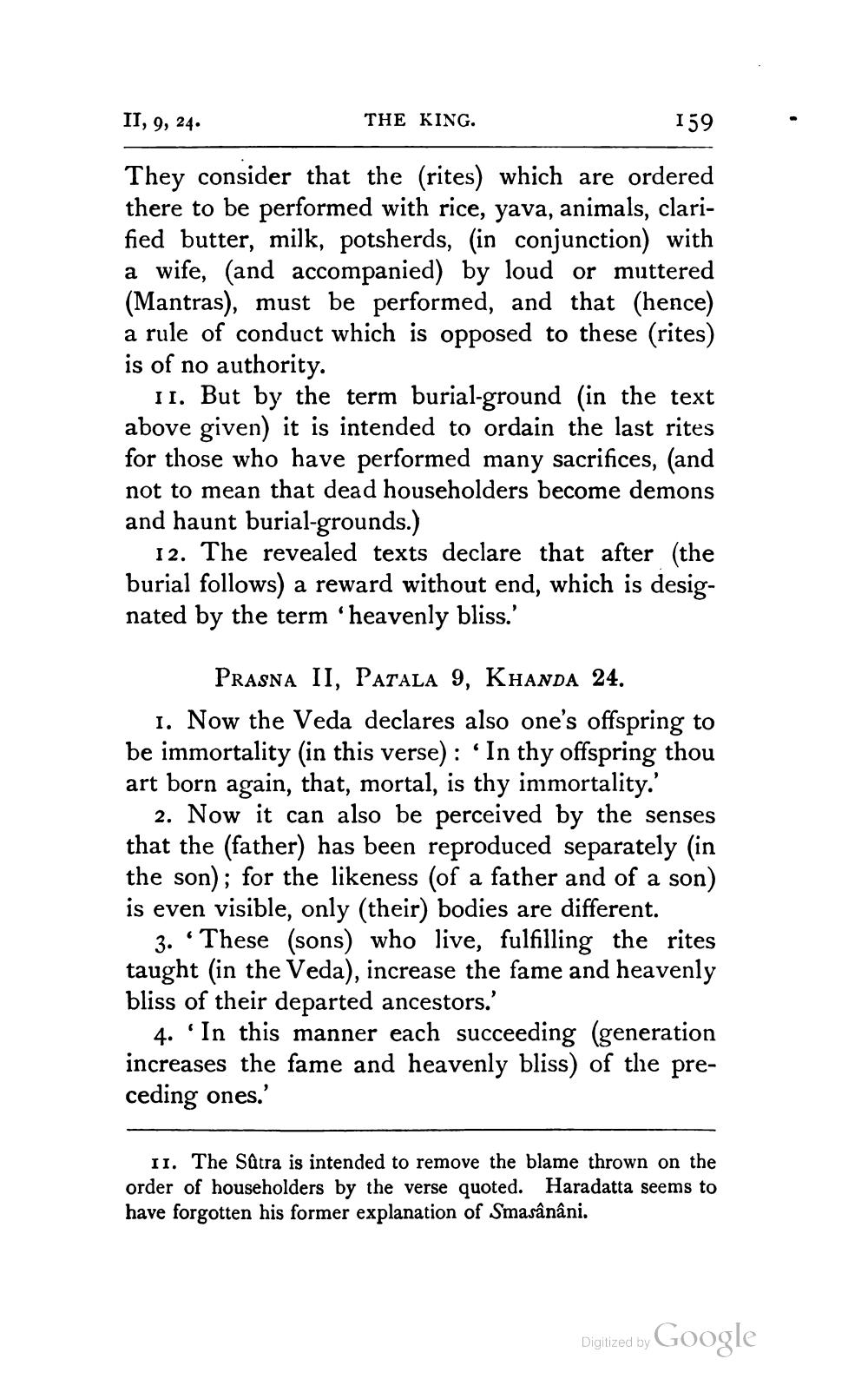________________
II, 9, 24.
THE KING.
159
They consider that the (rites) which are ordered there to be performed with rice, yava, animals, clarified butter, milk, potsherds, in conjunction) with a wife, and accompanied) by loud or muttered (Mantras), must be performed, and that (hence) a rule of conduct which is opposed to these (rites) is of no authority.
II. But by the term burial-ground in the text above given) it is intended to ordain the last rites for those who have performed many sacrifices, (and not to mean that dead householders become demons and haunt burial-grounds.)
12. The revealed texts declare that after the burial follows) a reward without end, which is designated by the term 'heavenly bliss.'
Prasna II, PATALA 9, KHANDA 24. 1. Now the Veda declares also one's offspring to be immortality (in this verse): 'In thy offspring thou art born again, that, mortal, is thy immortality.'
2. Now it can also be perceived by the senses that the (father) has been reproduced separately in the son); for the likeness (of a father and of a son) is even visible, only (their) bodies are different.
3. “These (sons) who live, fulfilling the rites taught in the Veda), increase the fame and heavenly bliss of their departed ancestors.'
4. In this manner each succeeding (generation increases the fame and heavenly bliss) of the preceding ones.'
II. The Sätra is intended to remove the blame thrown on the order of householders by the verse quoted. Haradatta seems to have forgotten his former explanation of Smasânâni.
Digitized by Google




